Post
A catch
Save a catch to start your fishing logbook. You will be able to to share it with the community if yo want!
A fishing trip
Post an ad to go fishing with other fishermen
Save a catch to start your fishing logbook. You will be able to to share it with the community if yo want!
Post an ad to go fishing with other fishermen
Share a thought, a question with the community
My favorite cities
×Join our 2 fishermen in Fort-Lauderdale in Broward. The fishing forecast is currently 3.3. The most caught fishes here are the spotted seatrout, the bronze bream, the muskellunge and the bluegill. Come try the most famous fishing techniques like the gathering seafood by hand, fishing for sea bass while surfcasting, surf fishing or fishing bream from a dock or jetty.
Our fishing forecast of Fort Lauderdale indicates the best time to go fishing in this city.
The Spotted Seatrout
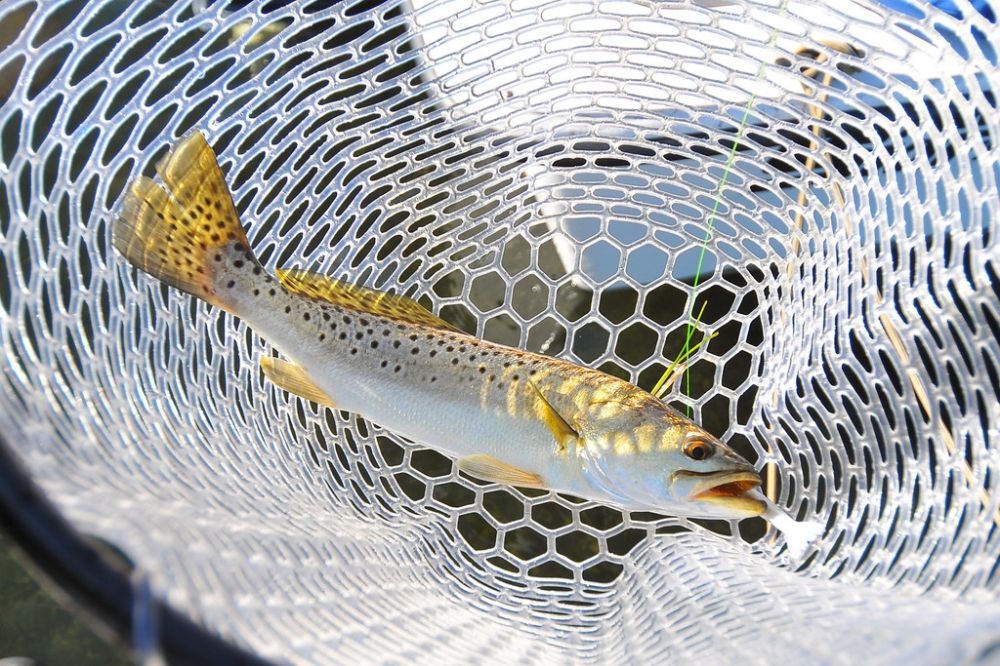
The Spotted Seatrout belongs to the Scianidae family. Spotted sea trout reach a maximum length of 100 cm and a maximum weight of 7.9 kg. The lifespan of this species is 8 to 10 years. It breeds from March to September. It can be fished all year round. The spotted seatrout has an elongated, somewhat compressed body with a slightly elevated back. The head is long with a pointed snout and a large oblique mouth. The dorsal fin is continuous or slightly separated. The fins are flake-free, with the exception of 1 to 10 rows of small scales at the base of the dorsal and anal fins. The lateral line extends over the tail, characteristic of all Sciaenidae. The body of the spotted seatrout is silvery with irregular black spots on the upper half, from the dorsal fin to the caudal fin. The dorsal side is dark grey with bluish reflections while the ventral side is silvery to white. The dorsal fin is dark, while the others are yellowish.
The Spotted Seatrout is a famous fish you can catch in Fort Lauderdale.The Bronze Bream
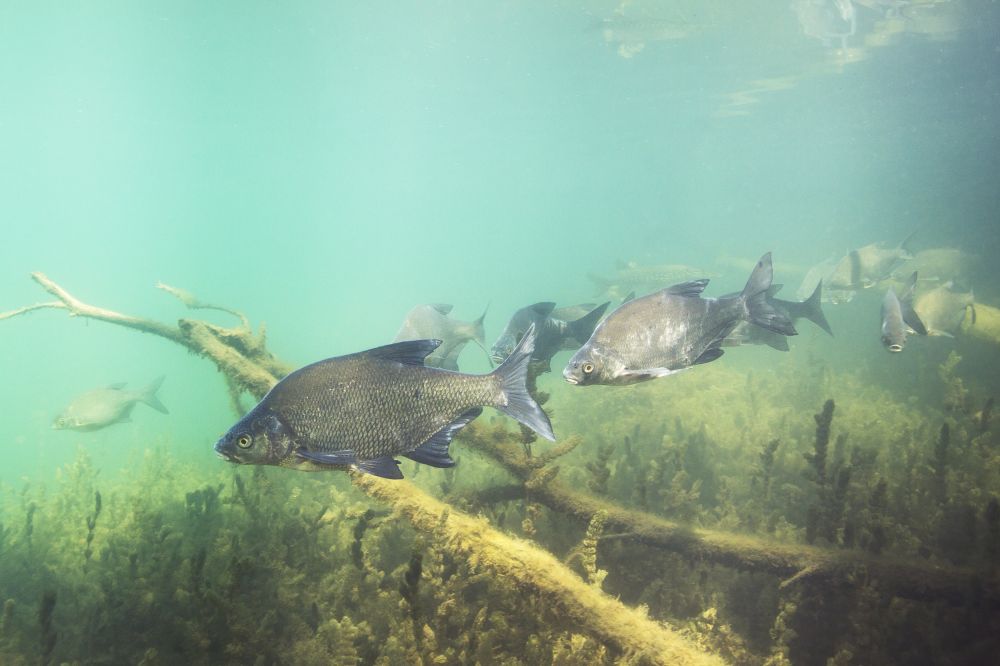
The Bronze bream belongs to the Cyprinidae Family. The current catch size varies between 30 and 50 cm, for a weight of 0.5 and 2.5 kg. Some individuals can reach a maximum height of 80 cm for a weight of 7 kg. It lives between 20 and 25 years. It reproduces between April and June and lay 100,000 to 300,000 eggs. The Bronze Bream can be fished all year round in 2nd category streams and is not hard to catch with the right bait. In Europe, there are 2 or 3 types of bream, 5 species and 2 subspecies. The Bronze bream has a very high and strong body flattened laterally. The bushy back, especially in older individuals, is characteristic of this fish. Its body is covered with large scales and mucus. The Bronze bream has a fairly small eye compared to the size of the muzzle. The mouth is small, oblique, barbless and protractile. The upper jaw protrudes beyond the lower jaw. Teeth are subject to seasonal replacement. The anal fin is very long and has 23-30 soft rays. On the other hand, the dorsal fin is short and inserted behind the pelvic fins. The caudal fin is very indented with the lower lobe longer than the upper lobe.
The Bronze Bream is a famous fish you can catch in Fort Lauderdale.The Muskellunge
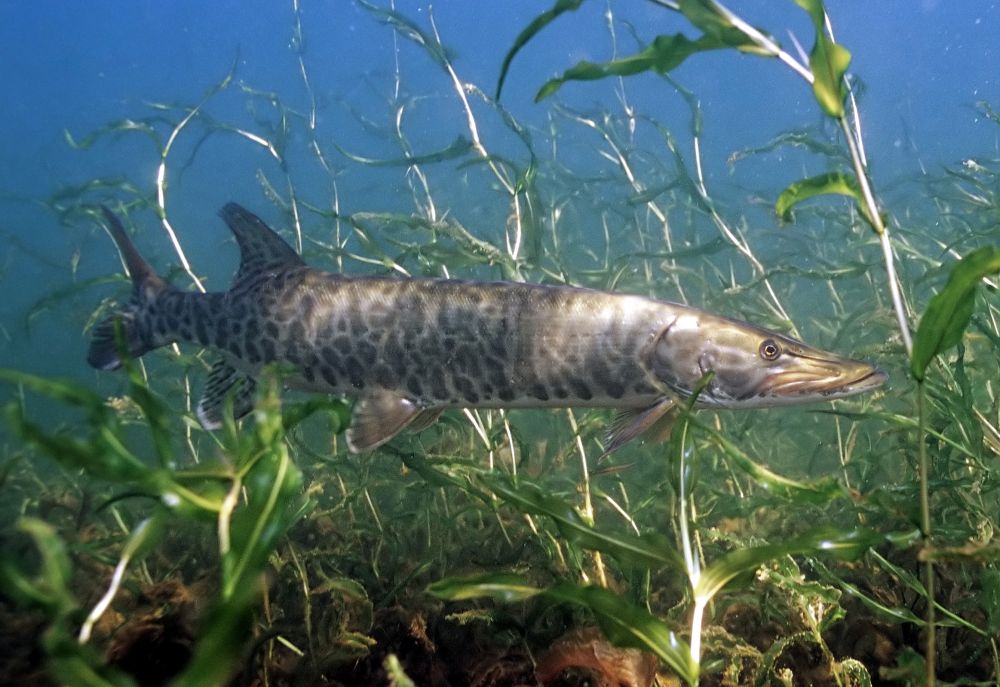
The Muskellunge belongs to Esocidae family. It can reach 150 cm of length for 30 kg. It has a lifespan of 30 years. They spawn in springs. It can be fished all year round. The sides vary from greenish to brownish to silvery, usually with dark marks, but marks may be absent. The white or cream belly often has brownish or greyish spots. The dorsal and anal fins, located far away on the body, range from greenish to brownish to blood-red and generally have dark marks. The duckbill jaws have long, pointed teeth: the roof of the mouth has shorter, curved tooth pads. The cheek cover and gills have scales on the upper half only. The underside of the jaw has sensory pores, the numbers varying from 12 to 20, but the number is generally 15 to 18.
The Muskellunge is a famous fish you can catch in Fort Lauderdale.The Bluegill
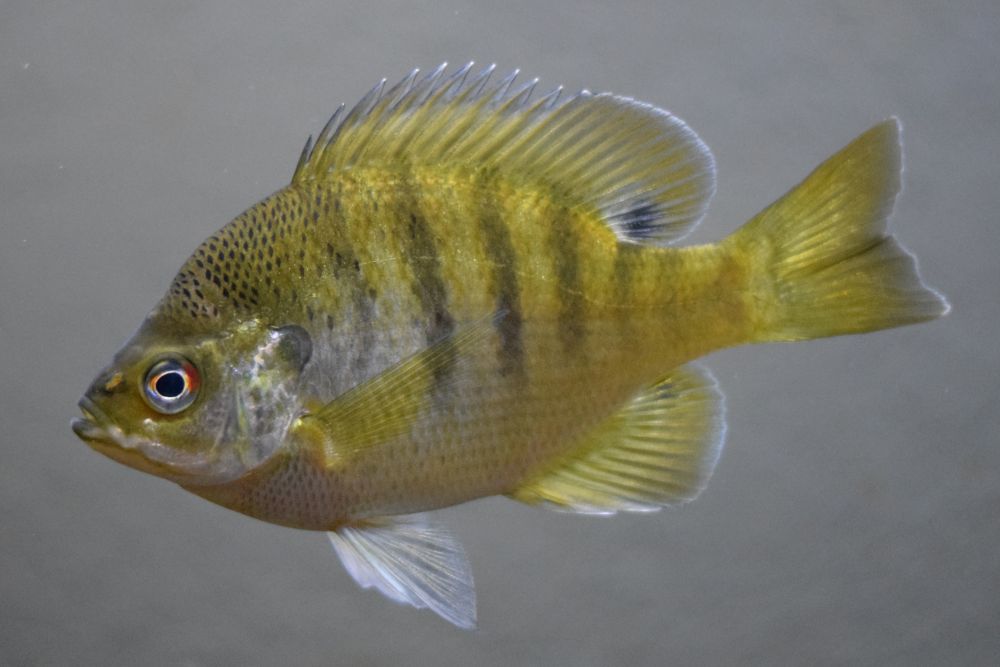
The Bluegill belongs to the Centrarchidae family. Adults are between 10 and 15 cm long but can reach 41 cm. Bluegill usually lives 4 to 6 years. Spawning season for bluegill begins in late May and continues until August. They can be caught from spring to summer. Like other cramps, bluegill have a very deep and flattened body. In other words, they are "large" and "flat". They have a small mouth on a small head. The dorsal fin is continuous, with the thorny anterior part and the soft, round posterior part with a dark touch at the base. The caudal fin is slightly forked but rounded. The body is mainly olive green with a yellowish underside. Their name "bluegill" comes from the shimmering blue and purple region on the cover of the cheeks and gills (operculum). A careful examination reveals six to eight vertical olive bars on the sides.
The Bluegill is a famous fish you can catch in Fort Lauderdale.Brown Trout
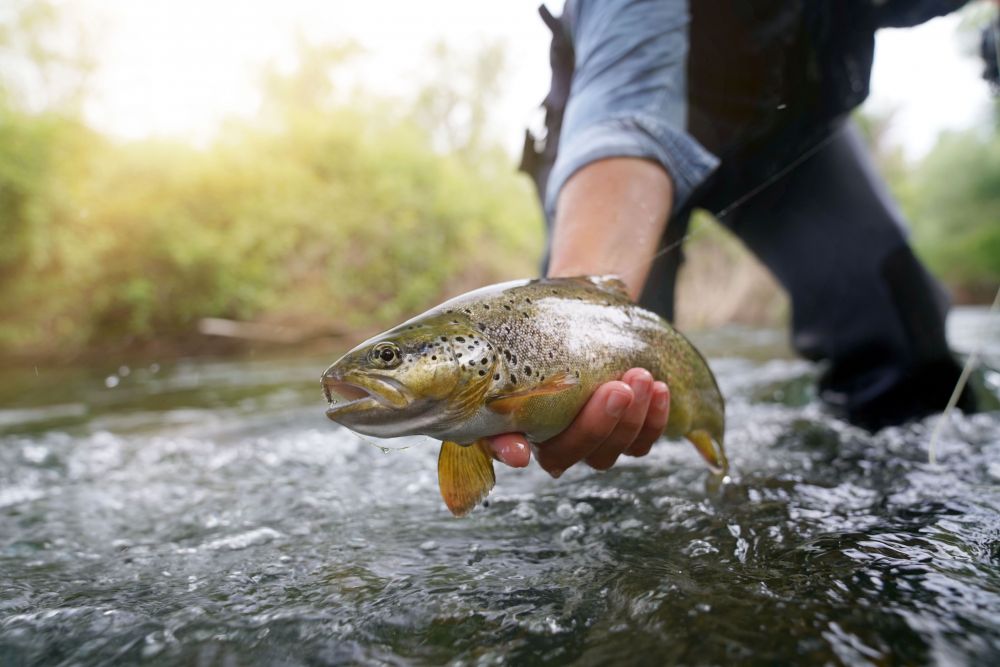
The Brown Trout belongs to the Salmonidae family. According to the location, the adult size varies from 25 cm to 80 cm for 300 to 800 g. It lives for 3 to 6 years. The spawning period starts in October and end in January. The female can lay up to 4000 eggs. The fishing period is open from the second Saturday of March until the third Sunday of September. This fish is not hard to catch but the fishing needs complex skills. Depending on its environment, the brown trout have a very variable color, but the brown trout, as its name shows, is rather brown with scattered black and red spots, depending on the spawners. It has a certain mimicry according to the bottom of its living spaces since the dominant brown will become a green dress if it lives close to the banks where yellow and even sometimes silvery white will mix. It has a "useless" adipose fin between the dorsal fin and the caudal fin. The head is tapered, strong and has a powerful jaw. Its back is a pretty black or night blue.
Brown Trout is a famous fish you can catch in Fort Lauderdale.Our fishing forecast of Fort Lauderdale indicates the best time to go fishing in this city.
Our fishing forecast of Fort Lauderdale indicates the best time to go fishing in this city.
Our fishing forecast of Fort Lauderdale indicates the best time to go fishing in this city.
